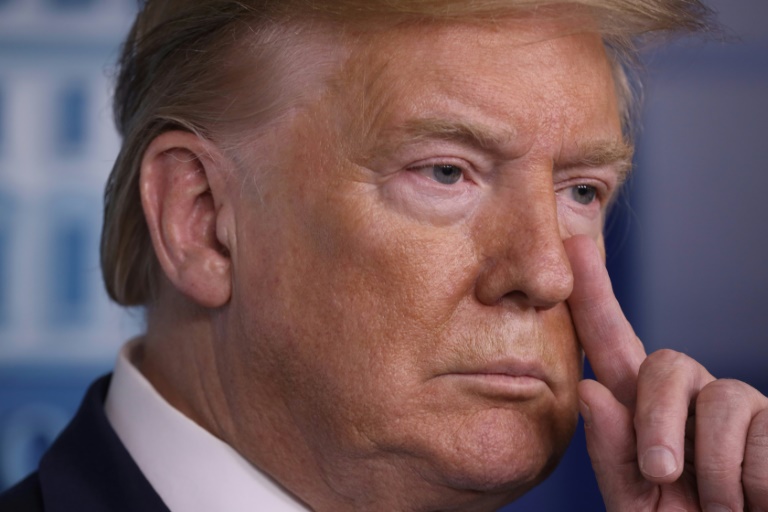White House, Fed Rolling Out Plans To Save US Economy
US President Donald Trump is drawing up a massive emergency spending package while the Federal Reserve has opened the floodgates of financing to contain the growing economic damage from the coronavirus pandemic.
After downplaying the severity of the outbreak for weeks, Trump on Tuesday called for bipartisan support for rushing out immediate cash payments to American families.
“We don’t want people losing jobs and having no money to live,” Trump said at a White House press conference, adding that the package “is a substantial number. We are going big.”
While he did not specify a total for the stimulus package, The Washington Post reported it could amount to $850 billion.
With businesses shutting down nationwide due to the coronavirus pandemic, Americans need “cash now,” Treasury Secretary Steven Mnuchin said at the White House.
“We are looking at sending checks to Americans immediately… I mean now, in the next two weeks,” he said.
The stimulus plan also will include money to airlines that have been hard hit by the pandemic, because “this is worse than 9/11” as travel has nearly ground to a halt.
According to the Post, the rescue would amount to the full $50 billion the airline industry has requested.
The talk of stimulus cheered battered Wall Street indices, with the Dow closing the day up 5.2 percent after Monday saw its worst drop since 1987.
– Flooding the markets –
The US central bank in the past two weeks has moved aggressively to boost confidence and keep financial markets and the US economy from grinding to a halt due to fear and a shortage of cash, acting far more quickly than it did during the 2008 global financial crisis.
The Fed on Sunday slashed the benchmark borrowing rate to zero and ramped up purchases of Treasury debt, and repeatedly made massive cash infusions into financial markets.
In its latest move Tuesday, the Fed announced a new credit backstop for commercial debt to help ensure households and businesses stay afloat.
“By ensuring the smooth functioning of this market, particularly in times of strain, the Federal Reserve is providing credit that will support families, businesses, and jobs across the economy,” the Fed said in a statement.
The more than $1 trillion markets for the commercial paper “is critical to the plumbing of the financial system” and will allow firms to continue paying their bills and their workers said economist Mickey Levy of Berenberg Capital Markets.
Though slow to react over a decade ago, “This time is very likely to be far different, as the Fed’s aggressive action is expected to achieve quicker results, even as the acute stage of the pandemic generates deep economic contraction,” Levy said in an analysis.
– Direct payments, tax relief –
Mnuchin said he was on his way to present the stimulus plan to Senate Republicans and would have more details later in the day.
Trump previously was focused on suspending taxes deducted from all American paychecks at least through the November presidential election, but Democrats and many economists say the focus on payroll taxes is too slow and misses workers who are laid off, unemployed or paid hourly.
Trump said Tuesday it was important to get the funds out quickly and again acknowledged that the economy could be headed for a recession but said it would come back strongly once the virus is defeated.
“We’re going to take care of it, we’ll be bigger, stronger and better than ever before,” the president said.
Mnuchin indicated there could be some means-testing for the cash payments, noting that, “We don’t need to send people who make a million dollars a year checks.”
The plan also will allow companies and individuals to defer tax payments to the government without penalty.
Republican Senate Majority Leader Mitch McConnell said Tuesday the chamber “will not adjourn until we have passed significant and bold new steps above and beyond what the House has passed.”
The White House package would be in addition to the $100 billion House measure directed at paid sick leave and expanded unemployment benefits already moving through Congress.
The total would surpass the $700 billion emergency program known as TARP to save the banking system during the 2008 global financial crisis.
McConnell and Republican leaders last week dismissed the Democratic package in the House as an inflated wish list of items.
Since then, the damage has accelerated, with businesses forced to close and whole states under lockdown.
(AFP)



Comments are closed.